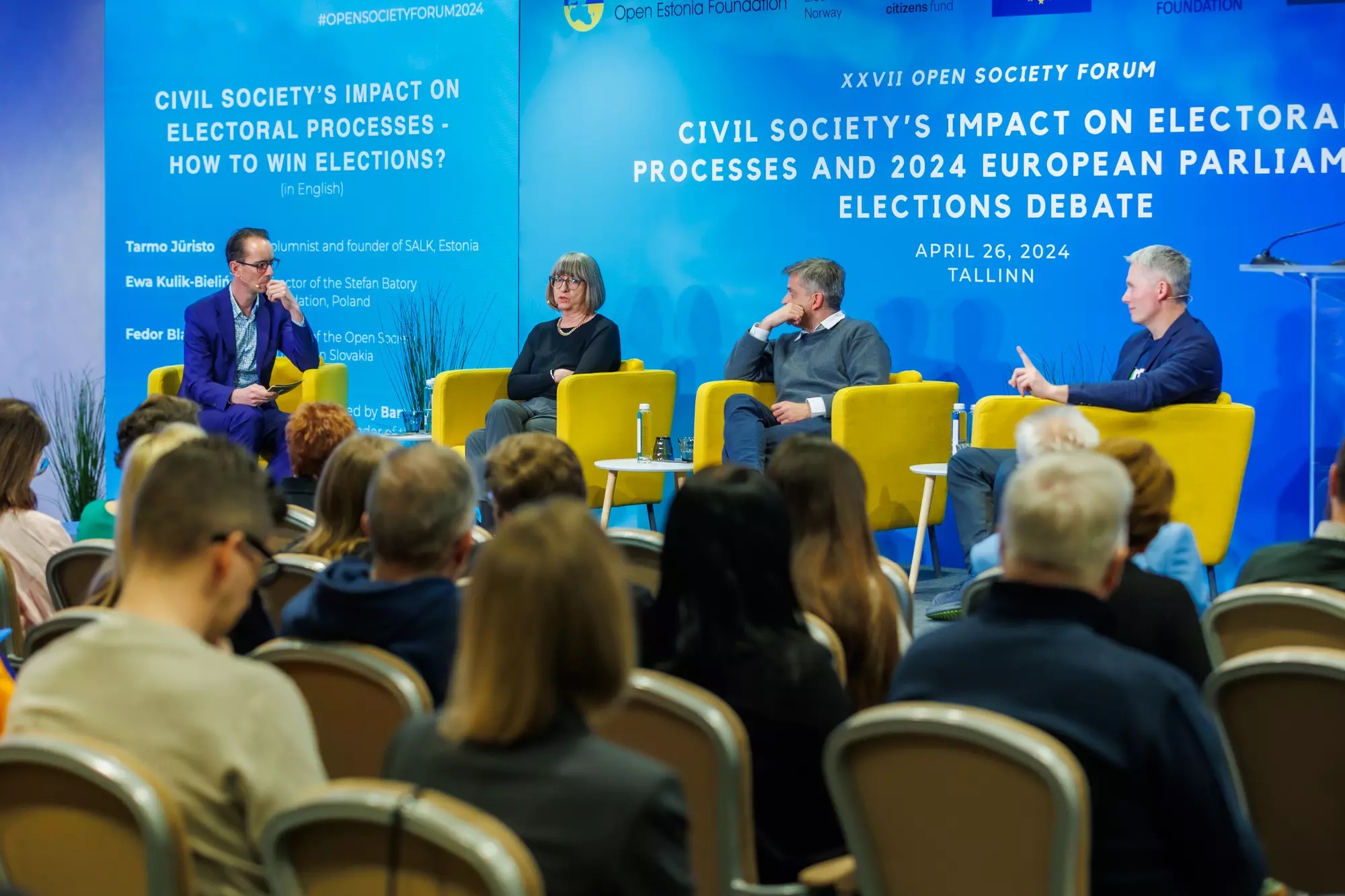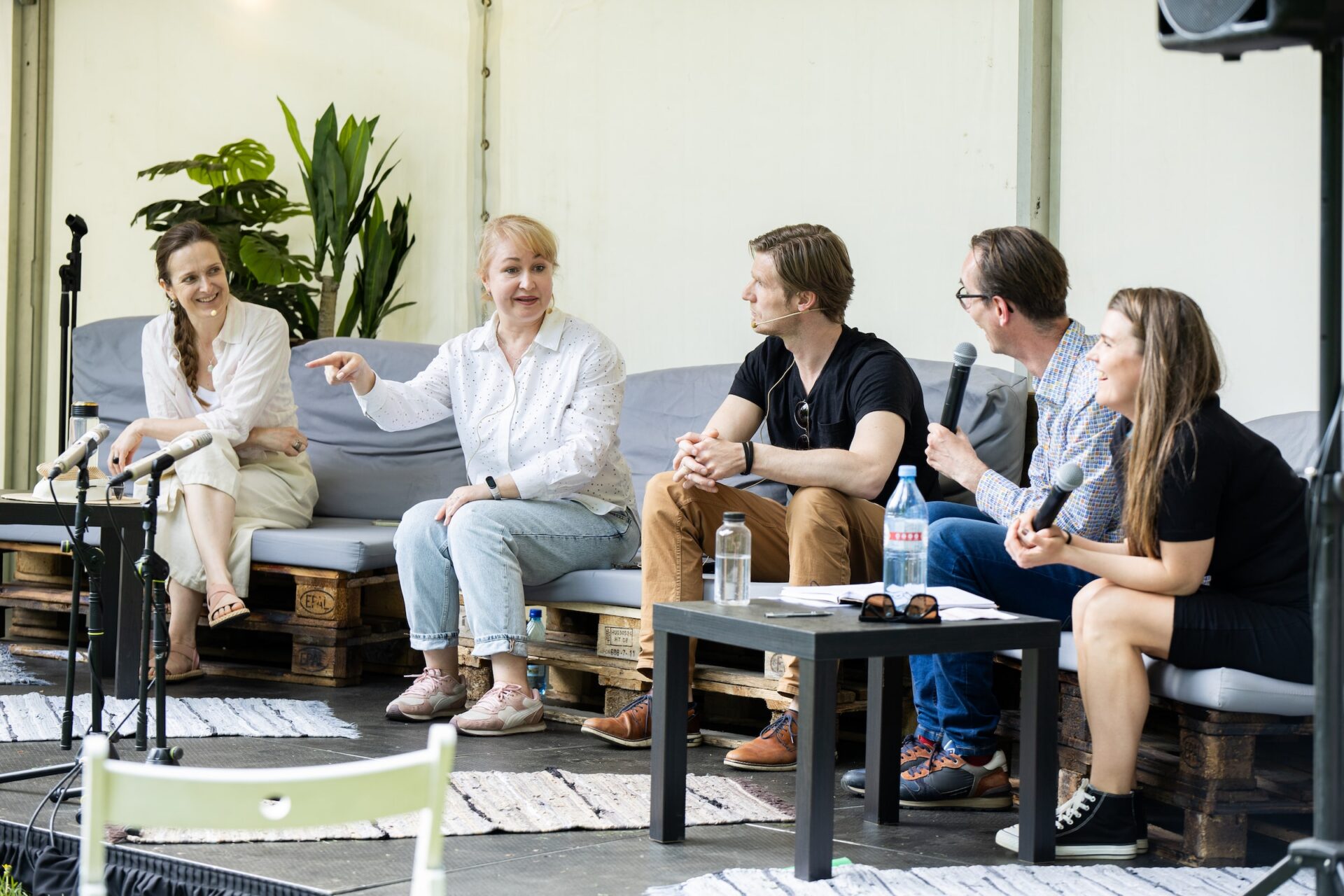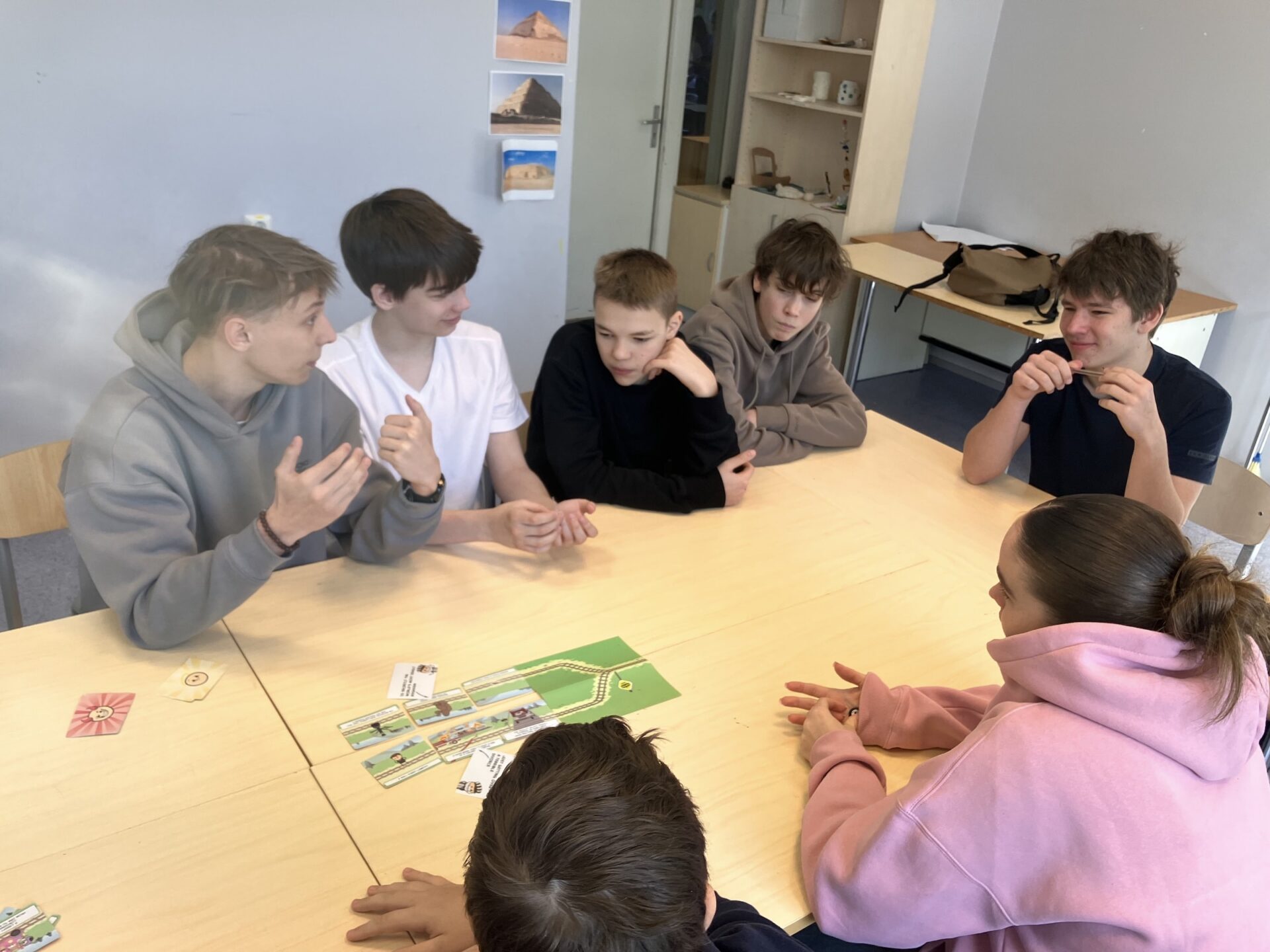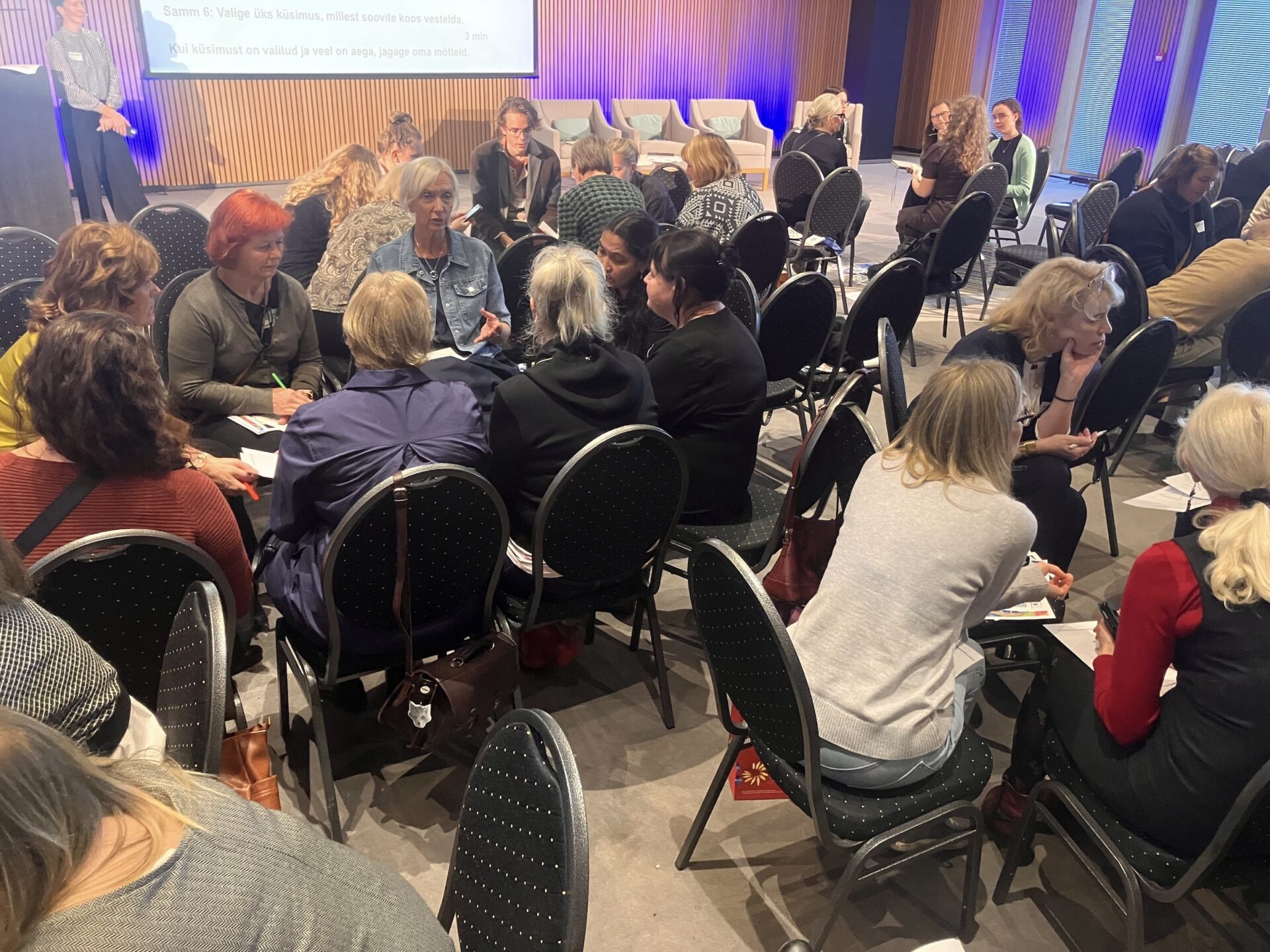Civil society´s impact on electoral processes, XXVII Open Society Forum
At the first part of the Open Society Forum in April 2024, titled “Civil society´s impact on electoral processes – how to win elections”? experts from Estonia, Poland and Slovakia, discussed how to actively engage citizens in democratic processes and promote their participation in shaping democratic public sphere. This public dialogue was facilitated by Bart Cosijn, founder of the Estonian Dialogue Academy. The experts were Ewa Kulik-Bielińska, Director of the Stefan Batory Foundation, Tarmo Jüristo, Founder and head of SALK, and Fedor Blaščák, Director of the Open Society Foundation Slovakia.
The Open Estonia Foundation gave the following background:
“In the current global landscape, we can observe a continuing and concerning trend of democratic decline and the surge of populism. Societies that were once open have become more closed, institutions tasked with protecting our rights are under pressure. All of this has been facilitated by the widespread dissemination of disinformation, exacerbating conflicts among different segments of society.
However, despite the challenges facing democracy, there are also some positive developments. The 2023 parliamentary elections in Poland showed that with the joint efforts of civil society and political mobilization, it is possible to reverse authoritarian trends. While each country has its unique characteristics, they also share common problems that may have shared solutions. To address these issues effectively, cooperation among civil society actors is essential.
As Europe gears up for the 2024 European Parliament elections and other significant national and local electoral events, the strategies employed by civil societies become pivotal. These strategies aim to actively engage citizens in democratic processes, fostering their involvement in co creating a democratic public space.”
You can watch the event here:




